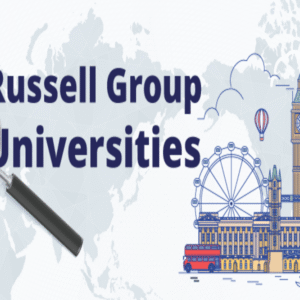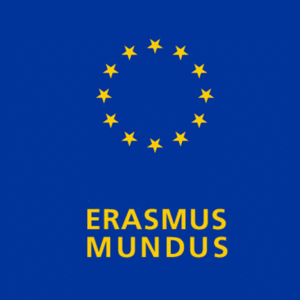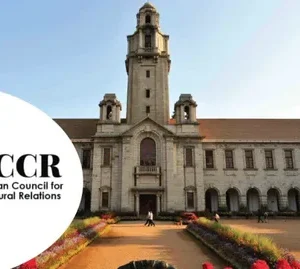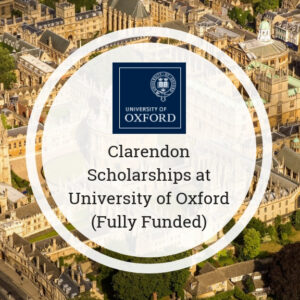If you’re a postdoctoral researcher from a developing country with ambitions to conduct high-impact studies in Japan, the UNESCO-Keizo Obuchi Research Fellowships Programme might just be the golden ticket you’ve been waiting for. Offering funding, research opportunities, and academic prestige, this fellowship enables young minds to push boundaries in key development fields — all while being hosted by some of Japan’s most advanced research institutions.
Applications for the 2025 round close on September 10, 2025, and here’s everything you need to know if you’re considering applying.
What Is the UNESCO-Keizo Obuchi Research Fellowship?
Launched in 2001 and supported by the Government of Japan, the fellowship program was established in memory of former Prime Minister Keizo Obuchi. It’s administered by UNESCO and aims to foster advanced research aligned with the UN’s Sustainable Development Goals (SDGs).
Each year, up to 10 young researchers from developing countries are selected for short-term research visits in Japan. These visits typically last 3 to 9 months and focus on four critical themes:
- Environment (with an emphasis on disaster risk reduction)
- Intercultural Dialogue
- Information and Communication Technologies (ICT)
- Peaceful Conflict Resolution
The program not only enables scholars to pursue impactful research but also fosters international academic collaboration between Japan and the developing world.
Why Is This Fellowship So Sought-After?
Let’s be honest: opportunities like this don’t come by every day. Here’s why the Keizo Obuchi Fellowship stands out:
- Prestigious international backing by UNESCO and Japan.
- Access to cutting-edge Japanese research institutions.
- A chance to develop professional networks with global scholars.
- Funding support that covers travel, living costs, and research expenses.
- A focus on real-world impact through research aligned with global development needs.
As noted by UNESCO’s fellowship brief, the program is designed for those whose work can contribute meaningfully to sustainable development, particularly in their home countries.
Who Can Apply?
This opportunity is open exclusively to postgraduates (Master’s degree holders or higher) under the age of 40, from UNESCO Member States listed as developing countries. Other key eligibility criteria include:
- Proven research experience
- Demonstrated commitment to one of the four thematic areas
- A detailed research proposal relevant to development objectives
- A letter of acceptance from a Japanese host institution (can be submitted later)
Fellowship Benefits at a Glance
Here’s what fellows receive under the 2025 Keizo Obuchi Fellowship:
| Benefit | Description |
|---|---|
| Monthly Stipend | Covers living expenses in Japan (varies depending on location and duration) |
| Roundtrip Airfare | Economy class travel from home country to Japan and back |
| Insurance | Basic health coverage provided |
| Research Budget | Some support for research-related activities like books or local travel |
While the exact amount of the stipend isn’t publicly disclosed, previous fellows have confirmed it’s sufficient for basic living costs in major Japanese cities like Tokyo and Kyoto.
Key Focus Areas for 2025
If you’re wondering whether your field of study fits, these four focus areas guide the fellowship selection:
1. Research in Disaster Risk Reduction & Environmental Science
Climate resilience is top on UNESCO’s list. If your research tackles climate change adaptation, sustainable agriculture, or disaster mitigation, you’re aligned perfectly.
2. Intercultural Dialogue and Social Inclusion
Projects promoting cultural heritage preservation, indigenous knowledge, or minority inclusion are welcome under this theme.
3. ICT for Sustainable Development
Researchers exploring how AI, data science, or internet access can bridge development gaps are encouraged to apply.
4. Peacebuilding and Conflict Resolution
This is for scholars working on post-conflict reconstruction, community peacebuilding, or policy-oriented conflict studies.
You can find further breakdowns in UNESCO’s official guidance document.
How to Apply: A Step-by-Step Guide
Applying might seem daunting, but breaking it down makes it manageable:
- Check Your Eligibility: Make sure you’re from a qualifying country and under age 40.
- Select a Research Topic: Choose a topic that aligns with one of the four thematic areas.
- Secure a Japanese Host Institution: Reach out to universities or research institutes in Japan. A letter of acceptance will be needed.
- Prepare Your Research Proposal: Be specific. Detail your methodology, objectives, and how it contributes to development.
- Gather Required Documents: Includes CV, degree certificates, references, and proof of nationality.
- Submit Application via Your National Commission for UNESCO: You can’t apply directly. All applications must be routed through your country’s National Commission for UNESCO.
Applications must reach UNESCO by September 10, 2025, but your country’s internal deadline may be earlier.
Find your National Commission contact here.
Common Mistakes to Avoid
Many strong applications are disqualified due to preventable errors. Here are a few traps to steer clear of:
- Generic proposals with no clear link to UNESCO’s development goals
- Submitting without host institution confirmation
- Missing your country’s internal submission deadline
- Plagiarized content or unoriginal research ideas
Success Stories: What Past Fellows Say
To inspire you, here are a few real-life examples:
- Dr. Anjali Rao, a fellow from India, conducted research on flood management systems in Osaka and later advised her state government.
- Carlos Mendez from Peru explored digital literacy in rural areas and is now leading an NGO on ICT for development.
- Fatima Idris, a Nigerian peace researcher, developed frameworks for community dialogue after Boko Haram conflict. She later received a UNDP grant.
These alumni all emphasize how the fellowship opened doors to academic and policy networks.
Why Tokyo Is the Ideal Hub for Postdoc Research
Choosing Japan as a research destination is no accident. Tokyo offers:
- World-class research facilities at institutions like the University of Tokyo and Tokyo Institute of Technology
- Exposure to cutting-edge tech and innovation culture
- Safe, clean cities with a strong focus on sustainability
- An enriching cultural experience that enhances intercultural dialogue
Being in Tokyo means living in a place where tradition meets tech in the most dynamic way.
Final Thoughts: Should You Apply?
Absolutely, if your work aligns with sustainable development, and you’re ready to step into a challenging yet rewarding environment.
This is more than just a research grant — it’s a global platform for rising scholars to transform ideas into real-world impact. But with a competitive application process, you need to start now.
So don’t miss out. Connect with your National Commission, build a strong proposal, and apply before the September 10, 2025 deadline.
Visit the UNESCO Fellowship Portal for the full details.
Quick Recap: Key Application Details
| Criteria | Details |
|---|---|
| Deadline | September 10, 2025 |
| Eligible Applicants | Postgraduates under age 40 from developing countries |
| Duration | 3 to 9 months in Japan |
| Focus Areas | Environment, Intercultural Dialogue, ICT, Peacebuilding |
| Funding | Monthly stipend, travel costs, insurance, research allowance |
| Host Institutions | Japanese universities or research institutes |
Ready to Take the Leap?
Start today. Reach out to potential host institutions, draft your proposal, and make your application stand out.
Time is ticking. The UNESCO-Keizo Obuchi Fellowship could be your chance to bring your research to life in Tokyo — and help shape a more sustainable future.





